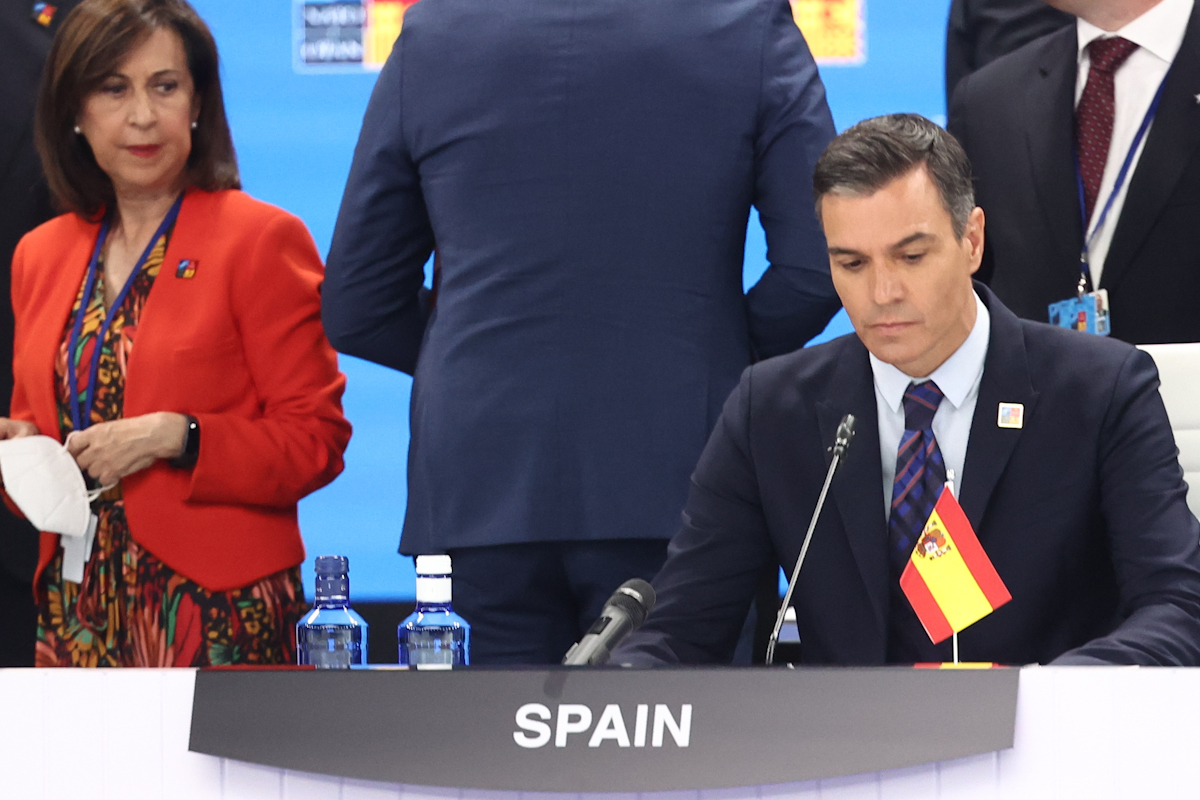Among “the key issues” listed by the Atlantic Alliance in its new manual there is one that offers Spain, among other countries, additional protection against a possible Moroccan shipment of immigrants to Ceuta as in 2021 or a hypothetical Algerian gas cut. Both attacks would be considered military aggression. “Hybrid operations against the Allies could reach the level of armed attack and could lead the North Atlantic Council to invoke Article 5,” says the so-called Security Concept 2022.
Hybrid threats include the political use of immigrants or the power outage and can trigger the key article of the Treaty: all for one, one for all.
NATO has been giving this relevance to hybrid threats since 2016, but it was not part of its Security Concept, which is what “defines the security challenges facing the Alliance and sets out the political and military tasks that NATO will take to address them.” In other words, this shield is inscribed in its strategic manual for the next 10 years.
In the 16-page document, it makes it clear in its first line that it is adopted in Madrid and establishes that NATO must protect itself from “authoritarian actors” that “carry out malicious activities in cyberspace and space, promote disinformation campaigns, they instrumentalize migration and manipulate and use economic blackmail. These actors are also at the forefront of a deliberate effort to undermine multilateral norms and institutions and promote authoritarian models of governance.”
The Alliance makes it clear in its new operations manual that the enemy is Russia and cites this threat much more profusely than the southern flank without a greater balance between the two fronts as Spain wanted. One example is that Russia appears 14 times in the document and Africa only four. Russia is also described as a “direct threat”, while China is credited with “challenging” allied interests and North Africa “affecting our security”. But from the wording it follows that Spain could use this Security Concept to request help from the Alliance in the face of an attack by Morocco with immigrants to Ceuta, as happened in 2021. Or also against a possible Algerian coercion with the gas supply, when the case.
“North Africa faces aggravated challenges,” says the document
In point 27 the protection is very explicit. “We will invest in our ability to prepare, deter and defend against the coercive use of political, economic, energy, information and other hybrid tactics by states and non-state actors. Hybrid operations against the Allies could rise to the level of armed attack and could lead the North Atlantic Council to invoke Article 5 of the North Atlantic Treaty.”
This article, a cornerstone of the Alliance, states: “The Parties agree that an armed attack against one or more of them, which takes place in Europe or North America, will be considered as an attack directed against all of them.”
The Foreign Minister, José Manuel Albares, has no doubts that NATO protects Ceuta and Melilla, despite the fact that they are outside the perimeter of the Treaty, but the wording of the Security Concept reinforces the shield for the territorial integrity of the allies. “Although NATO is a defensive Alliance, no one should doubt our strength and determination to defend every inch of Allied territory, preserve the sovereignty and territorial integrity of all Allies, and prevail against any aggressor,” he says.
Sources from the Alliance stress that the Concept of Security cannot replace the Treaty and that, therefore, the case of Ceuta and Melilla is not as automatic as other territories of the Alliance, but they consider it very likely that, in the event that Spain had than to invoke article five by attacking both cities, NATO would respond.
NATO promises to invest only in “reliable energy providers”
Although Russia dominates the new Security Concept, there are express mentions of the so-called southern flank of the Alliance. Point 11 specifies that “conflicts, fragility and instability in Africa and the Middle East directly affect our security and that of our partners. NATO’s neighbors to the south, especially the Middle East, North Africa and Sahel regions, face interconnected security, demographic, economic and political challenges. These are exacerbated by the impact of climate change, weak institutions, health emergencies and food insecurity.” This situation “fertilizes a fertile ground for the proliferation of non-state armed groups, including terrorist organizations.” “It also allows destabilizing and coercive interference by strategic competitors,” he adds, referring to Russia or even China in the region.
Energy is fully included in the Security Concept as an essential asset that must be protected. “We will enhance our energy security and invest in stable and reliable energy supply, providers and sources.”
Conforms to The Trust Project criteria
















